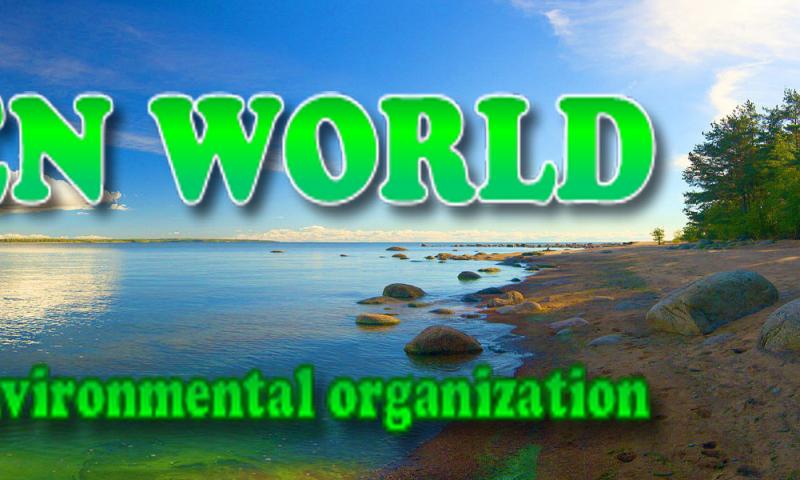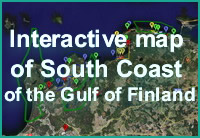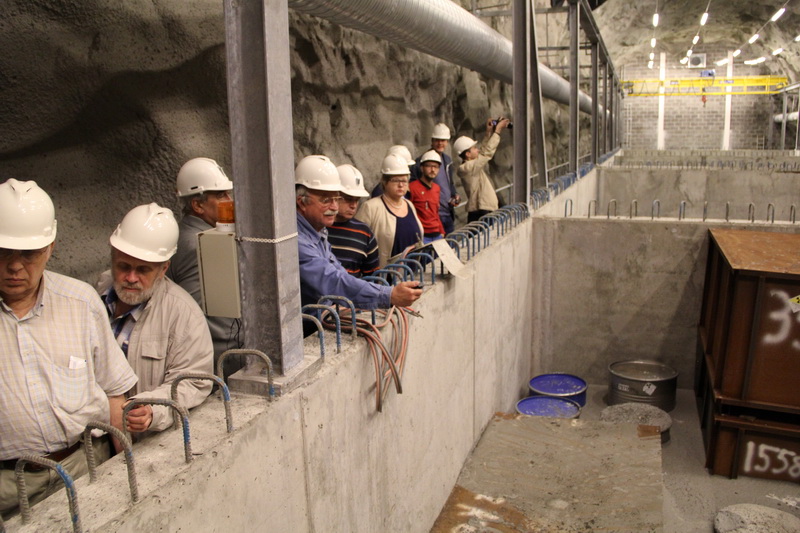
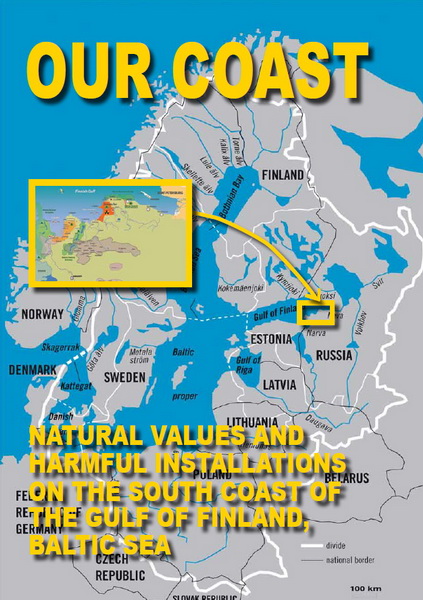 |
The South Coast of the Gulf of Finland |
|---|---|
| Natural Values and Harmful Installations |
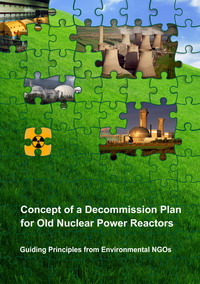 |
Concept of a decommission plan for old nuclear power reactors |
|---|---|
| Guiding Principles from Environmental NGOs |
Resolution of the International round table discussion: DECOMMISSIONING OF NUCLEAR POWER PLANTS
Decommissioning of nuclear power plants in the round table discussed in Norway, the authorities, nuclear experts and the public concerned of Russia, Norway and Lithuania.
Members of the Round Table visited national repository of radioactive waste, discussed reports. As a result of discussion a resolution was adopted:
Resolution of the International round table discussion:
DECOMMISSIONING OF NUCLEAR POWER PLANTS
Problems and Solutions for the Sustainable Development of Regions With NPPs,
Spent Nuclear Fuel And Radioactive Wastes Management 4 - 5 June 2015, Halden, Norway
BACKGROUND FOR DISCUSSION:
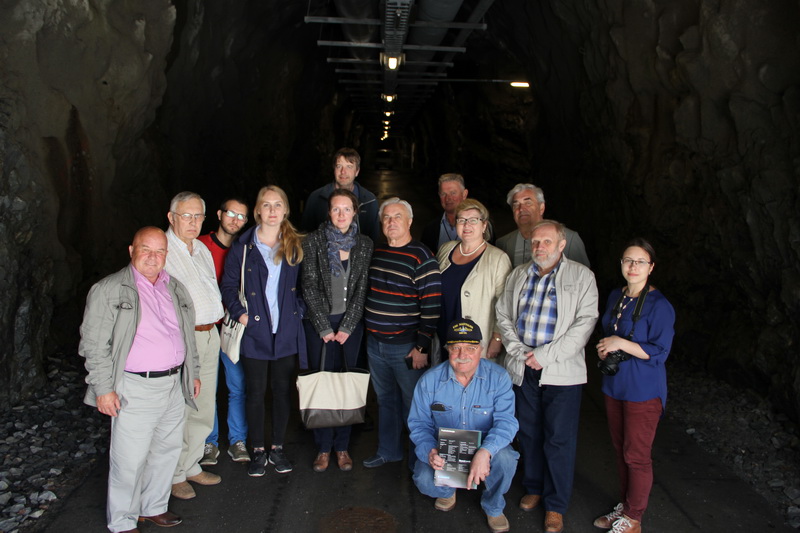 The final halt and decommissioning of the world's oldest RBMK-1000 at the Leningrad Nuclear Power Plant (LNPP) is planned for 2018. The oldest operating power units with VVER-440 nuclear power plants at the Kola NPP, the same age as LAES, will be decommissioned in the future in the Murmansk region. The Northwest Federal District of Russia will be the first to solve the complex problems associated with the decommissioning of energy units, final disposal of radioactive waste and spent nuclear fuel (SNF). The experience in solving the complex problems of the decommissioning of these nuclear power plants can be replicated in other federal districts of Russia and in other countries.
The final halt and decommissioning of the world's oldest RBMK-1000 at the Leningrad Nuclear Power Plant (LNPP) is planned for 2018. The oldest operating power units with VVER-440 nuclear power plants at the Kola NPP, the same age as LAES, will be decommissioned in the future in the Murmansk region. The Northwest Federal District of Russia will be the first to solve the complex problems associated with the decommissioning of energy units, final disposal of radioactive waste and spent nuclear fuel (SNF). The experience in solving the complex problems of the decommissioning of these nuclear power plants can be replicated in other federal districts of Russia and in other countries.
MISSION OF THE ROUND TABLE DISCUSSION:
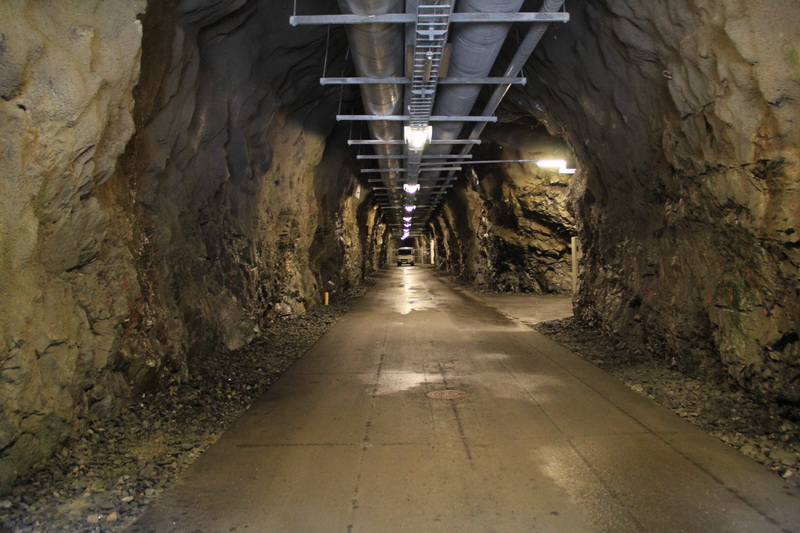 To promote the effective interaction at all levels of government, the nuclear business, and the concerned public in order to take into account the interests of all stakeholders for addressing the complex problem of decommissioning nuclear power plants, long-term isolation of radioactive waste, spent nuclear fuel and ensuring a balanced development of those regions involved in the
To promote the effective interaction at all levels of government, the nuclear business, and the concerned public in order to take into account the interests of all stakeholders for addressing the complex problem of decommissioning nuclear power plants, long-term isolation of radioactive waste, spent nuclear fuel and ensuring a balanced development of those regions involved in the
process.
PURPOSE OF THE ROUND TABLE DISCUSSION:
To discuss the best international practices about the basic principles and possible mechanisms for ensuring the balanced development of the regions of decommissioning nuclear power plants and radioactive waste and spent nuclear fuel.
PARTICIPANTS:
- Deputies of the State Duma of the Russian Federation;
- Legislators of the Leningrad and Murmansk Oblasts;
- Expert nuclear scientists of Russia, Lithuania, Norway;
- Members of the public of the Northwest and Urals regions of Russia, of Norway, and of members of the international network of decommissioning.
TAKING INTO CONSIDERATION:
- The responsibility to future generations for the safe decommissioning of nuclear power plants and long-term isolation of radioactive waste and spent nuclear fuel;
- Inadequacy of the existing Russian legislative framework and material resources to ensure the safe decommissioning of nuclear power plants, long-term isolation of radioactive waste and spent nuclear fuel for solving complex social and environmental issues;
- Lack of cooperation of the authorities of regions of those decommissioning nuclear powers plant where waste and spent fuel are situated, nuclear power plant operators, and the interested public in the development of plans for the decommissioning of nuclear power plants;
- The existence of positive international experience in involving the interests of national, regional and municipal authorities, the nuclear industry and the public during the decommissioning of nuclear and hazardous radioactive sites.
Participants of the Round Table Discussion, visiting a Norwegian national repository for radioactive waste, having heard and discussed the reports,
CONSIDER IT ESSENTIAL TO PROPOSE:
That the Russian State Duma elaborate and adopt:
- Legislation governing the clear, legally relevant and transparent mechanisms for the community involvement of all stakeholders: national, regional and local government authorities, nuclear operators, regulators of nuclear safety, and the public concerned in the planning and monitoring of the decommissioning of nuclear power plants;
- Legislation for the decommissioning of nuclear power plants, spent fuel management, social protection of NPP personnel, funds for the decommissioning of each NPP, as well as supervisory boards of those funds with the participation of representatives of the authorities, plant operators, interested public and the citizens of the region of decommissioning;
- Legislation for independent (non-government) regional environmental monitoring as a basis for political decision-making to ensure the environmental safety of the decommissioning of nuclear power plants;
- Legislation to diversify the economy and reduce the dependence of the social infrastructure of cities with radiation and nuclear facilities, including those one-company cities and towns with closed administrative-territorial units (ZATO), in order o ensure their balanced development while strengthening the physical protection of nuclear facilities on their territory.
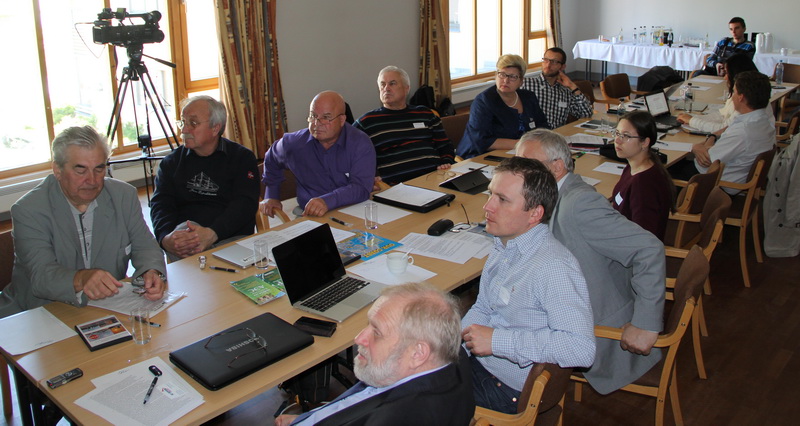
That the Russian Government:
Sign the Aarhus Convention "On Access to Information, Public Participation in Decision-making and Access to Justice in Environmental Matters relating to the environment" in order to provide a higher level of social and environmental safety in the siting, construction, operation and decommissioning of nuclear and radiation dangerous sites.
That the bodies of state power of subjects of the Northwest Federal District of Russia:
- Initiate the establishment of regional legislation regulating relations to take into account the interests of the population of the federal subjects of the North-West Federal District of the decommissioning of nuclear power plants, nuclear and radiation hazardous sites;
- Develop inter-community councils to monitor the process of decommissioning of nuclear facilities with the authorities, the nuclear industry, academics, and the public with financial support from their respective budgets.
That the Rosatom State Corporation:
More generally involve scientific, technical and environmental associations in the preparation, conducting of public assessments and hearings, in order to prevent manipulation of public opinion in the siting, design, construction and decommissioning of nuclear facilities.
That Non-Government Organizations:
- Consolidate the efforts of non-governmental organizations on the implementation of the rights of citizens in decision-making related to the decommissioning of nuclear and radiation hazardous facilities in the relevant territories;
- Motivate legislators in their regions to develop and adopt legal provisions protecting the rights of citizens in order to take into account environmental, social and other interests of the present and future generations for the decommissioning of nuclear and radiation hazardous sites.
THIS RESOLUTION WAS DISCUSSED AND SIGNED BY ALL PARTICIPANTS OF THE ROUND TABLE DISCUSSION JULY 17, 2016:
Deputies of the State Duma of the Russian Federation:
1. Ivan Ignatievich Nikitchuk, Ph.D., Moscow, Russia, First Deputy Chairman of the Committee on Natural Resources, Environment and Ecology of the State Duma. A former deputy chairman of the City Council of the close nuclear town (ZATO)) Arzamas-16, Russia. Participant of study trip to the repository of radioactive waste (Sweden, 2013), Finland and Korea (2014). Member of the Communist Party faction of Russian State Duma.
Deputies of the regional legislature of the Northwest of Russia:
2. Michael Timofeevich Vivsyany, Sosnovy Bor, Leningrad Region, the deputy chairman of the Standing Committee on Ecology and Environment of the Legislative Assembly of the Leningrad Region, a member of the Environmental Committee of the Parliamentary Association of North-West Russia, the coordinator of the Working Group on the decommissioning of nuclear power plants of the Environmental Committee of the Parliamentary Association of North-West Russia, an expert on nuclear power plants; more than 30 years he worked at the Leningrad Nuclear Power Plant, headed trade union workers of LNPP, participated in the trade union of workers of the nuclear industry in Russia, participates in international round-table discussion of decommissioning nuclear power plants in St. Petersburg. (2011, 2013, 2014) and Washington (2014). Member of the Justice Russia faction of Leningrad Oblast Legislative Assembly.
3. Natalia Vladimirovna Leshchinskaya, Murmansk, Russia, Chairman of the Committee on Ecology and Environment of the Murmansk Regional Duma, member of the Federal Environmental Council of the Ministry of Natural Resources and Ecology of the Russian
Federation, member of the Environmental Committee of the Parliamentary Association of the North West of Russia, a member of the working group on decommissioning nuclear power plants of the Environmental Committee of Parliamentary Association of the North West of Russia, a member of A Justice Russia faction of the Murmansk regional Duma.
Experts nuclear industry:
5. Oleg Enverovich Muratov, St. Petersburg, Russia, PhD, head of Radiation Technology Department of JSC TVELL (St. Petersburg), Executive Secretary of the Northwestern branch of the Russian Nuclear Society, a member of the Public Council of Rosatom State Corporation, one of the authors of the “Concept of a decommission plan for old nuclear power reactors Guiding Principles from Environmental NGOs” (2008), author of the report "Experimental demonstration centers for decommissioning of nuclear and radiation hazardous objects ", a participant of study tour to the decommissioning Nord NPP (Germany), participant of round table decommissioning discussions in St. Petersburg. (2013, 2014).
6. Andrey Vladimirovich Polonsky, Moscow, Russia, expert on Radioactive Waste Management of the Committee on Natural Resources, Environment and Ecology of the State Duma of RF, member of study trips to the repositories of radioactive waste in Sweden (2013) and Finland (2014).
7. Viktor Nikolaevich Shevaldin, Ignalina, Lithuania, the former director of the Ignalina Nuclear Power Plant, participated in the development and implementation of plans for the decommissioning of the Ignalina Nuclear Power Plant.
8. Mahwash Ajaz,, Oslo, Norwegian Radiation Protection Authority, Senior Adviser, section for International Nuclear Security, coordinating the Nuclear Action Plan.
9. Charles Streeper, Oslo, Norwegian Radiation Protection Authority, Senior Adviser, section for International Nuclear Security.
10. Jan Porsmyr, Institute for energy Investigations (IFS), Halden, Norway.
Members of the public:
11. Oleg Bodrov, Sosnovy Bor, Leningrad region. Russian physicist, ecologist, chairman NGO "Green World", the expert of the Public Council of Rosatom State Corporation, one of the authors of the “Concept of a decommission plan for old nuclear power reactors Guiding Principles from Environmental NGOs” (2008), screenwriter, producer of ten video-documentary films about the experience of decommissioning of nuclear power plants, radioactive waste and spent nuclear fuel in Russia, Lithuania, Germany, the United States; one of the organizers of the roundtable, study tours for representatives of the Russian authorities, nuclear experts and the public on nuclear facilities in Lithuania, Germany, USA, Sweden and Finland. The head of the international project of NGO "Green World" to decommission nuclear power plants.
12. Vitaly V. Servetnik, Murmansk, Russia, the head of the international project NGO "Kola Environmental Center" (KEC) to decommission nuclear power plants, a participant of study trips to nuclear facilities in Sweden, Finland; participants of roundtable discussions on issues of decommissioning nuclear power plants, radioactive waste and spent nuclear fuel management in
St. Petersburg. (2013, 2014) and Krasnoyarsk (2013), a member of board of NGO "Kola Ecological Center".
13. Andrey Talevlin, PhD, Chelyabinsk, Russia, Participation by Skype. Head of the social movement (SM) "For the Nature", an expert of the Public Council of Rosatom State Corporation, a specialist in nuclear law; participant of study trips to nuclear facilities in Sweden, Finland, USA; Author of analytical articles on the problems of nuclear law, a participant in the roundtable discussions on issues of decommissioning nuclear power plants, radioactive waste and spent nuclear fuel management in St. Petersburg. (2013, 2014), Krasnoyarsk (2013), USA (2014), Head of the International Project SM "For the nature" for decommissioning nuclear power plants.
14. Gennady Shabarin, St. Petersburg, Russia, writer, director and operator of ten documentary films about the experience of decommissioning of nuclear power plants, radioactive waste and spent nuclear fuel management in Russia, Lithuania, Germany, USA, winner of the international festival of documentary environmental film (Irkutsk, 2011), a member of board of NGO Green World.
15. Dag Arne Høystad, Oslo, Norway, constituted head of International Department of Naturvernforbund – Friends of the Earth, Norway.
Oleg Bodrov, coordinator of the International Organizing Committee of Round Table Discussion, International NGO Decommission Network
Sosnovy Bor, Leningrad Oblast, Russia
Office phone/ Fax: +7 (81369) 72991,
mob. phone: +7 921 74 52 631,
e-mail: bodrov@greenworld.org.ru
skype: skybodrov
www.greenworld.org.ru
www.decomatom.org.ru

